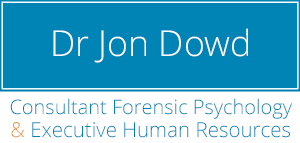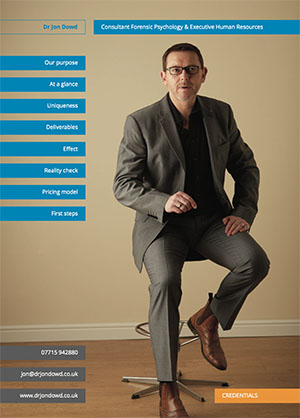Hiring a ‘mini-me’
Monday, October 17, 2016

Whenever you interview - as with any conversation - you subconsciously look for stimuli that pique your interest… you’re after someone who aligns with you on some level, who shares your ethos and your goals, who fits with your work-ethic, who is similar to you in… temperament, character, personality, outlook, socialisation, motivation, etc etc etc.
And this is why many people end up employing a ‘mini-me’.
‘They’re perfect!’ The boss will declare.
‘They’re you.’ The staff will reply.
If you think someone exactly like you will look after your interests, you’re probably right.
If you think someone exactly like you will advance your business beyond anything you can envisage, you’re probably wrong.
Of course, selecting ‘ourselves’ for a job isn’t always a conscious thing. For the most part our selection process is skewed by a subconscious draw towards finding a spark of commonality. This is how we make friends and, as social beings, we find our friends without much conscious thought.
‘We just clicked.’
When recruiting, the person with the hiring responsibilities must have the foresight to overlook their initial (and very personal) judgements, and stick to the cold, hard facts.
In numerous recruitment situations, it’s been proven that selection has been made based on factors that have nothing at all to do with the person’s ability to do the job - visual acceptability, cultural fit, demographic, circumstantial opinion.
“We like to think that we can spot ‘talent’, but insights from behavioural science show that our decision-making is actually highly prone to ‘sloppy-thinking’ and bias. Even highly trained assessors make systematically different decisions depending on the time of day and their ‘cognitive load’ or ‘brain-strain’ at that point in time.” Jonny Gifford, Research Adviser at the CIPD
Start at the end
Know your end goal. Always.
It sounds simple, but is often hard to achieve because we get side-tracked by emotions along the way. This is how we end up justifying our decision to ‘compromise’ and not employ exactly the right person.
Hiring clones ISN’T the answer to growing most businesses.
But hiring clones IS the answer for most individual interviewers.
So there’s clear conflict.
What you need is an outside eye who can not only select candidates with vehement subjectivity and unquestioned clarity of vision… but who can also predict the future long-term job suitability, progressive contribution and unshakeable loyalty.
Now, that’d be something! Right?
Dr Jon Dowd Ltd does two very key things when looking at the subject of hiring a ‘mini-me’… 1) assesses factual suitability for the job at hand. 2) assesses future behaviours based on current observations.
So, not only will we tell you who is right for the role now; but who will continue to be right for the role in years to come.
Interviewing ‘in the moment’ doesn’t work. Look ahead.








0 comments